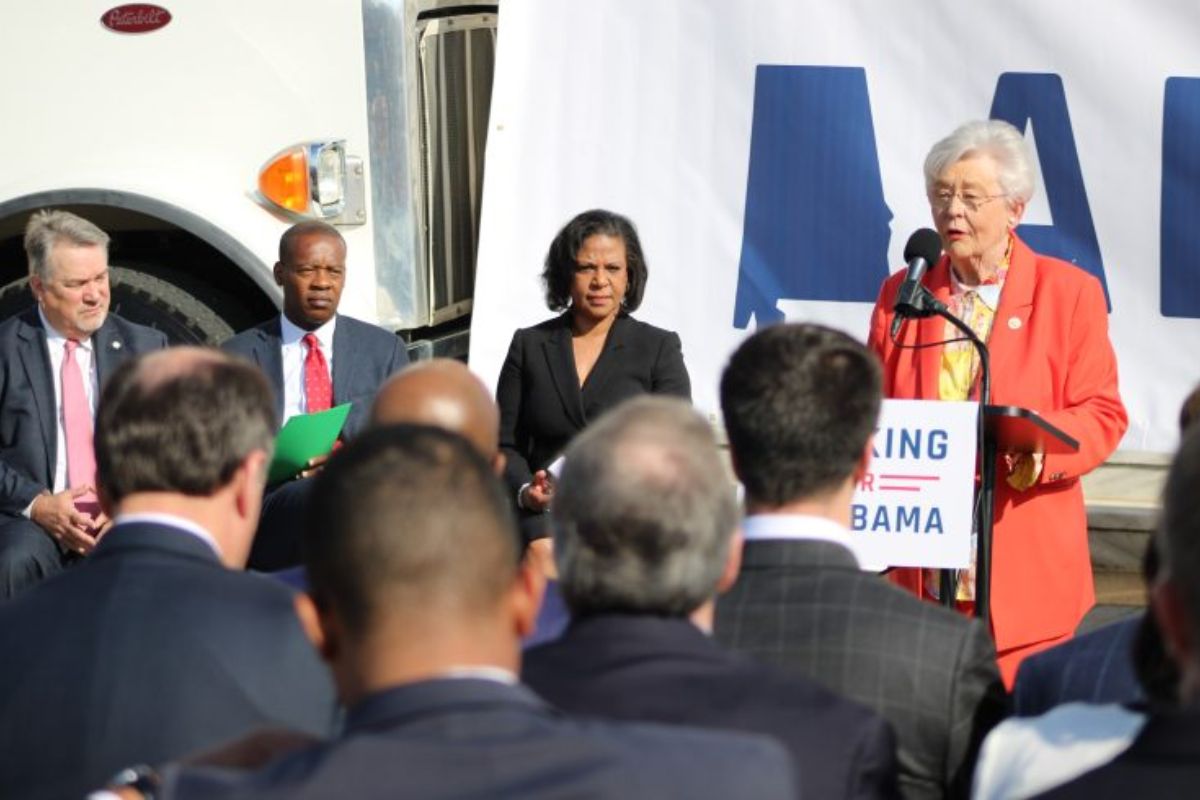Senate Advances 3 Workforce Bills: The recent advancements in the Alabama Senate regarding workforce development and economic growth are commendable, with the approval of three pivotal bills signaling a proactive approach to addressing workforce readiness challenges. However, the decision to postpone Senate Bill 242 and Senate Bill 243 raises intriguing questions about the complexities surrounding taxing policies and eminent domain powers, prompting a deeper examination of the proposed measures and the concerns voiced by key legislators.
As discussions unfold on the path forward for these delayed bills, the nuanced considerations and potential implications for Alabama’s economic landscape invite a closer look into the intricate dynamics shaping the state’s legislative agenda.
Senate Approval of Priority Workforce Bills
The Alabama Senate decisively approved three pivotal workforce and economic development bills during its session on Tuesday. These bills aim to enhance the state’s workforce readiness and bolster economic growth.
One of the approved bills focuses on expanding access to vocational training programs, equipping individuals with the skills needed for high-demand industries. Another bill establishes tax incentives for businesses that invest in workforce development initiatives, incentivizing companies to contribute to the growth of a skilled labor force in Alabama. The third bill addresses funding for infrastructure projects that are essential for economic development, ensuring that necessary resources are allocated to support growth and innovation.
The passage of these bills demonstrates the Senate’s commitment to fostering a competitive business environment and preparing Alabamians for the jobs of the future. By prioritizing workforce development and economic growth, the Senate is laying the groundwork for a prosperous future for the state.
Details of Delayed Bills
Amidst deliberations in the Alabama Senate, concerns have been raised regarding the extensive taxing and eminent domain powers embedded within Senate Bill 242, also known as the Innovation District Act. Sen. Arthur Orr criticized the bill for granting substantial authority in these areas, prompting the sponsor, Sen. Bobby Singleton, to acknowledge the need for revisions.
As a result, a request for a delay was made to allow for further adjustments to address the contentious issues within the proposed legislation. In addition to Senate Bill 242, a similar postponement was sought for Senate Bill 243, which aims to introduce a required constitutional amendment related to the Innovation District Act.
The decision to delay both bills indicates a recognition of the need for additional scrutiny and refinement before advancing them through the legislative process. This cautious approach underscores the importance of thorough evaluation and potential modifications to make sure that the proposed laws align with the best interests of all stakeholders.
Passed Senate Bills
A trio of significant bills, recently passed by the Alabama Senate, are set to bring notable changes to the state’s economic development and workforce initiatives.
Senate Bill 252 establishes the Alabama Growth Alliance, which will play a pivotal role in overseeing the state’s economic development strategy. This bill aims to streamline efforts and guarantee a more cohesive approach towards economic growth in Alabama.
Senate Bill 247, known as the Alabama Workforce Transformation Act, represents a significant step towards reorganizing the Alabama Department of Labor. Under this act, the head of the department will now hold the title of the Secretary of Workforce, signaling a shift in focus towards workforce development and enhancement.
Additionally, Senate Bill 253, the Alabama Career Pathway Act, introduces an alternative pathway for students to obtain high school diplomas with a focus on workforce readiness. This bill is designed to cater to the diverse needs of students and align educational pathways with the demands of the workforce.
Perspectives and Next Steps
Senate President Pro Tem Greg Reed emphasized the importance of ensuring that the approved workforce bills align with the broader goals of economic development and education in Alabama.
The focus now shifts to the implementation and impact of these bills on various stakeholders. As discussions continue regarding the postponed measures, particularly those related to student pathways to higher education and community college enrollment, it is vital to contemplate the potential implications and benefits for the state’s workforce and economy.
Stakeholders, including educators, businesses, and policymakers, must collaboratively navigate the details of these bills to maximize their effectiveness and address any potential challenges that may arise during the implementation process. Additionally, monitoring and evaluating the outcomes of these workforce initiatives will be essential in determining their success and informing future decision-making.
Moving forward, a strategic and thorough approach will be essential to ensure that these workforce bills contribute positively to Alabama’s economic development and educational landscape.
News in Brief
The Alabama Senate’s recent advancements in approving workforce and economic development bills demonstrate a commitment to enhancing the state’s workforce readiness and economic growth.
While some proposals were postponed for further refinement, this decision reflects a dedication to addressing concerns and ensuring maximum impact on the state’s economic and educational objectives.
The Senate’s actions underscore a thoughtful and strategic approach to legislation aimed at fostering sustainable economic development and workforce readiness in Alabama.
ALSO READ: ALDOT And MPOs Begin Review of Mobile River Bridge Project Costs

